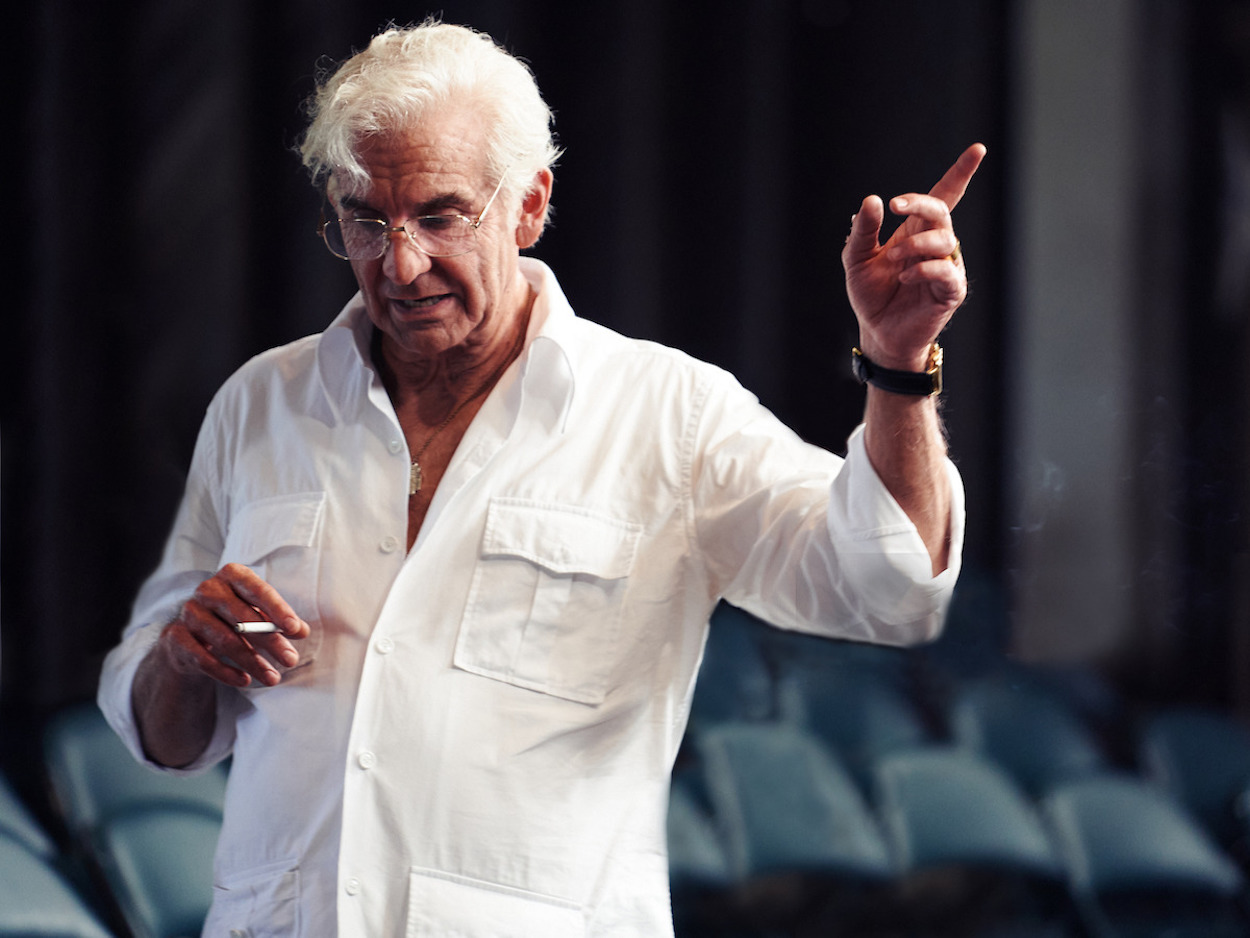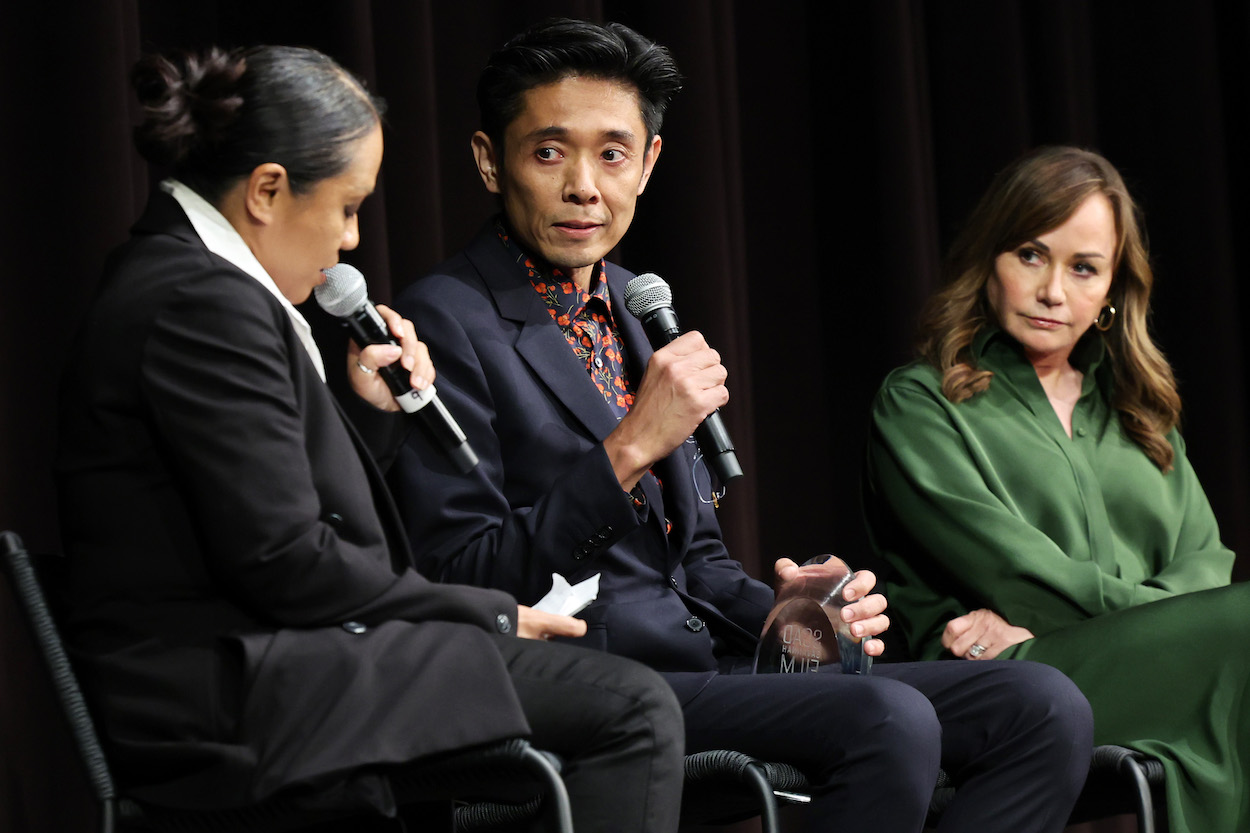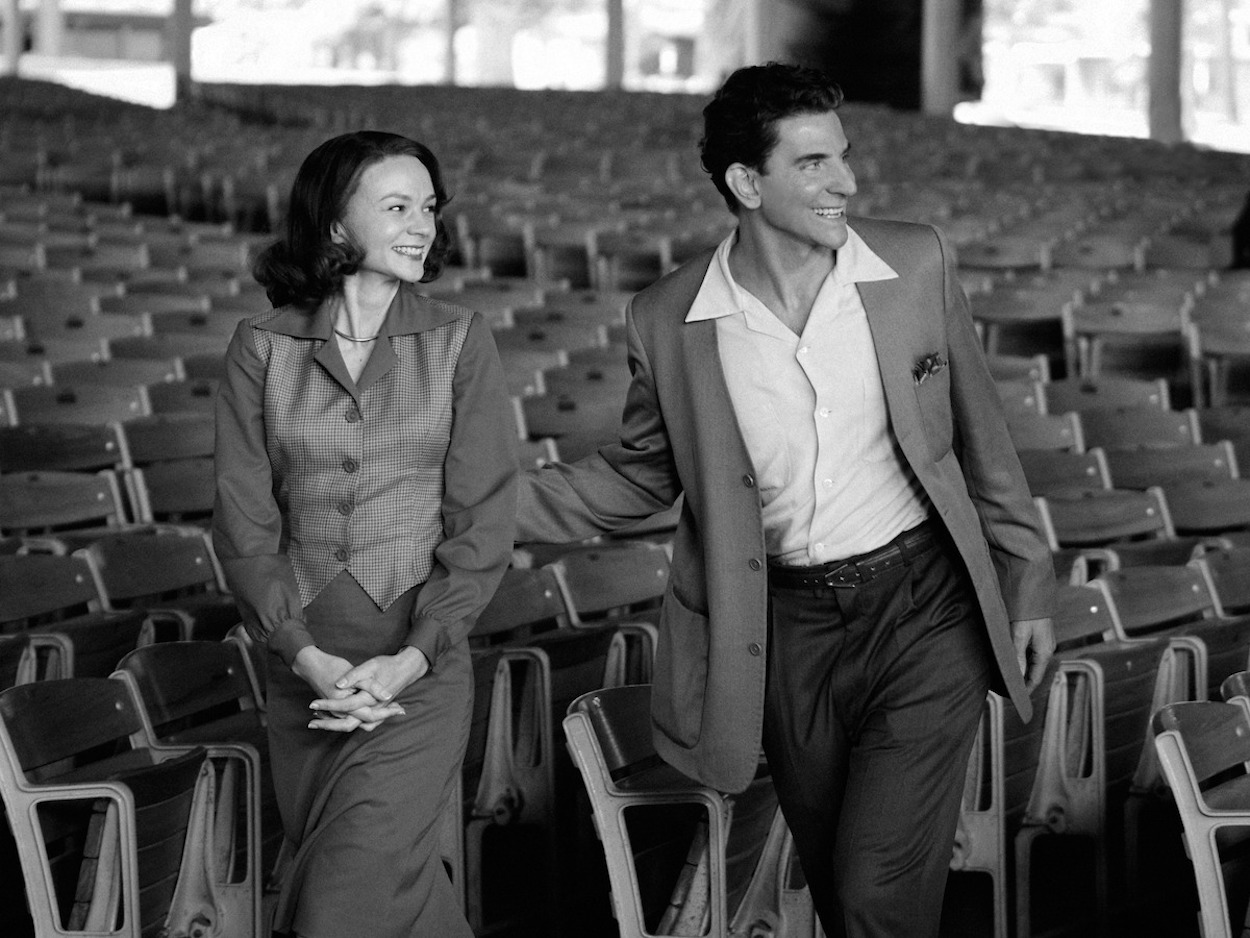By now, it’s practically trivia that Bradley Cooper, who stars as Leonard Bernstein in the newly released Maestro, spent six years learning how to conduct the London Symphony Orchestra for a riveting six-minute-long scene at the crux of the film. The movie hits theaters today and isn’t so much a biopic of the epic conductor as it is an intimate dramatization of his marriage to Chilean actress Felicia Montealegre, played by Carey Mulligan. The movie was 15 years in the making, and not without controversy.
In 2008, the project landed with Martin Scorsese before shifting to Steven Spielberg, under whom Cooper was tapped for the starring role. When Spielberg became unavailable, Cooper threw his hat in the ring and invited the director to see an early cut of A Star is Born. After about 20 minutes, Krieger recalled, “Steven leaned over and said [to Cooper], ‘You’re directing this fucking movie.’” Even though Bernstein’s children have been deeply involved with the project from the beginning, there has been no shortage of online chatter about Kazu Hiro and Cooper’s decision to use a prosthetic nose to portray the late conductor. After stills of the film were released in August, some decried the actor’s use of the prosthetic as antisemitic—a claim the Anti-Defamation League and Bernstein’s own children refuted.
Hiro is a master of his craft. A protégé of Dick Smith, whose genre-defining makeup effects played a pivotal role in catapulting The Exorcist and The Godfather to fame, Hiro’s transformative skill has earned him numerous awards and unanimous industry recognition as the best in his field. He applied that prowess to three intense years working alongside Cooper to create prosthetics that would allow the actor to portray a 50-year span of the conductor’s life. Hiro worked with 3D scans of Cooper and Mulligan’s faces and bodies, which, over the last 20 years, has replaced the one-time industry standard of making life casts of actors from materials like oxygenating plaster. While life casts have a tendency to distort the face, or in Hiro’s words, “look like death masks,” the newer technology creates “a copy of the living actor,” he said. “I 3D printed his head cast and sculpted the five different stages.” From that sculpture, Hiro created a mold and cast silicone ears and applied those pieces on him.
“It’s the actor underneath you have to work with, so I can’t simply make the likeness of Lenny on Bradley because I have to understand how he acts with it and what would be comfortable for him to wear every day,” Hiro said during a panel conversation at the film festival. That brings up the application time. “The youngest stage [took] around two hours and 15 minutes, and the oldest almost took five hours,” he said, explaining that as Bernstein aged, prosthetics crept from the actor’s face to his neck, chest, and arms. “He was just amazing,” Hiro said. Towards the later stages of the movie, it made for a 1:00 AM call time for the actor-director, who reported to the set ready to work by 7:00 AM.
In addition to providing the rights to Bernstein’s music to Cooper for the film, the Bernsteins were involved in numerous other ways throughout. Beyond permitting the production design team to shoot on-location at their Connecticut home, they also worked with the costume design team and shared photos of their father with Hiro to better inform his prosthetics. “Then we showed the kids,” Krieger recalls. “Bradley FaceTimed the kids, and when Alexander Bernstein burst into tears, we kind of knew we were going in the right direction.”



